第32章 CHAPTER XII(2)
These humble pages do not aspire to the dignity of History; but a few words as to what took place are needful for the writer's purposes. The garrison in Vienna had been comparatively small; and as the National Guard had joined the students and proletariats, it was deemed advisable by the Government to await the arrival of reinforcements under Prince Windischgratz, who, together with a strong body of Servians and Croats under Jellachich, might overawe the insurgents; or, if not, recapture the city without unnecessary bloodshed. The rebels were buoyed up by hopes of support from the Hungarians under Kossuth. But in this they were disappointed. In less than three weeks from the day of the outbreak the city was beleaguered. Fighting began outside the town on the 24th. On the 25th the soldiers occupied the Wieden and Nussdorf suburbs. Next day the Gemeinderath (Municipal Council) sent a PARLEMENTAR to treat with Windischgratz. The terms were rejected, and the city was taken by storm on October 30.
A few days before the bombardment, the Austrian commander gave the usual notice to the Ambassadors to quit the town.
This they accordingly did. Before leaving, Lord Ponsonby kindly sent his private secretary, Mr. George Samuel, to warn me and invite me to join him at Schonbrunn. I politely elected to stay and take my chance. After the attack on the suburbs began I had reason to regret the decision. The hotels were entered by patrols, and all efficient waiters KOMMANDIERE'D to work at the barricades, or carry arms. On the fourth day I settled to change sides. The constant banging of big guns, and rattle of musketry, with the impossibility of getting either air or exercise without the risk of being indefinitely deprived of both, was becoming less amusing than I had counted on. I was already provided with a PASSIERSCHEIN, which franked me inside the town, and up to the insurgents' outposts. The difficulty was how to cross the neutral ground and the two opposing lines. Broad daylight was the safest time for the purpose; the officious sentry is not then so apt to shoot his friend. With much stalking and dodging I made a bolt; and, notwithstanding violent gesticulations and threats, got myself safely seized and hurried before the nearest commanding officer.
He happened to be a general or a colonel. He was a fierce looking, stout old gentleman with a very red face, all the redder for his huge white moustache and well-filled white uniform. He began by fuming and blustering as if about to order me to summary execution. He spoke so fast, it was not easy to follow him. Probably my amateur German was as puzzling to him. The PASSIERSCHEIN, which I produced, was not in my favour; unfortunately I had forgotten my Foreign Office passport. What further added to his suspicion was his inability to comprehend why I had not availed myself of the notice, duly given to all foreigners, to leave the city before active hostilities began. How anyone, who had the choice, could be fool enough to stay and be shelled or bayoneted, was (from his point of view) no proof of respectability. I assured him he was mistaken if he thought I had a predilection for either of these alternatives.